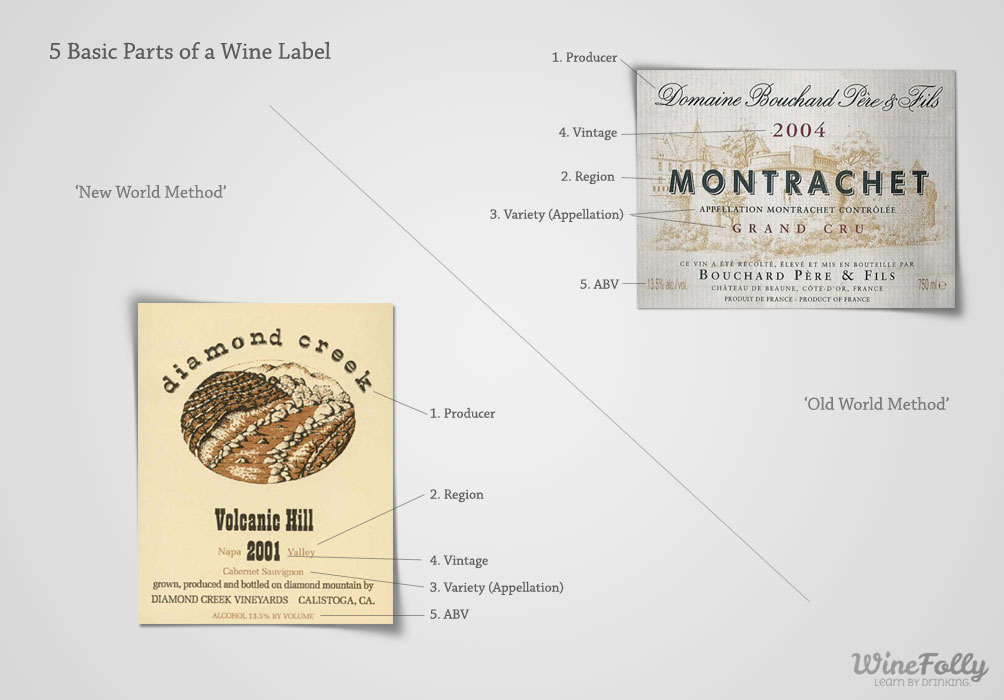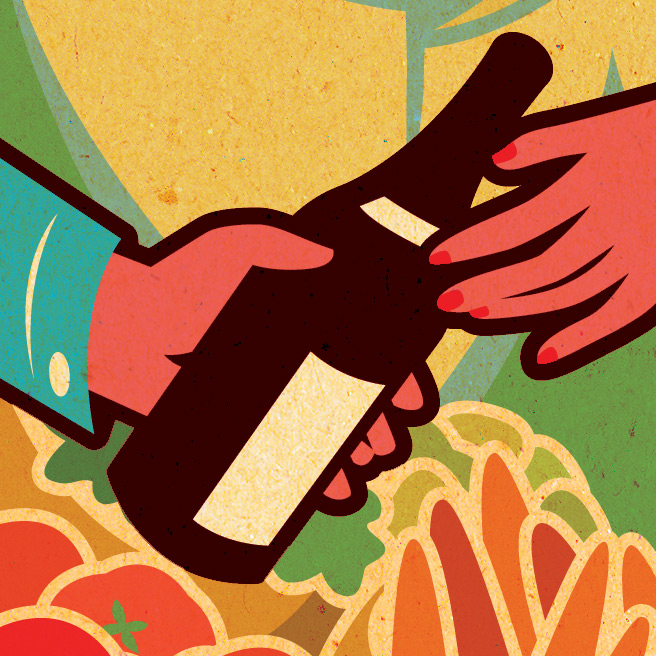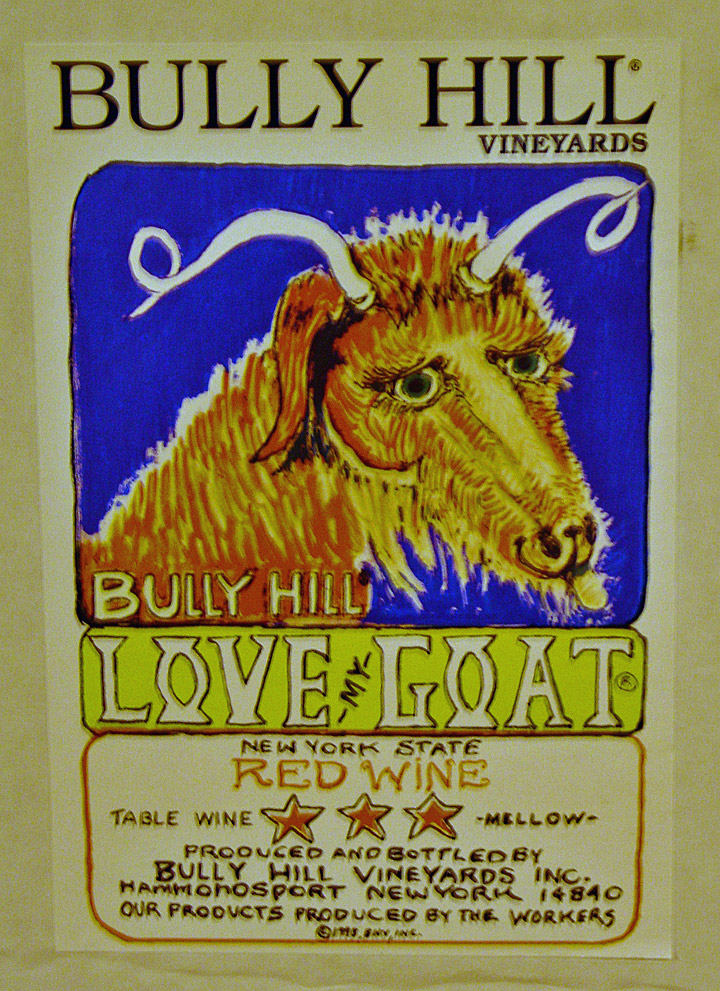25 Words Everybody Should Know about Wine
Say that you’re meeting your boyfriend’s parents for the first time next Saturday night and you want to impress them with a little wine knowledge. Or your company’s CEO has asked you to attend a wine and cheese reception before your presentation to the entire Board. Or perhaps you’ve just wanted to improve your wine vocabulary.
Whatever the reason, you’ve come to the right place to learn some wine basics. Here are 25 words everybody should know about wine. Some will help you read the wine bottle; while others will help you distinguish one wine from another. When we’re done with you, you should be able to wander into a liquor store and choose a wine based on more than just the eye-pleasing design of the label.
Some Words to Help Read a Wine Label
Appellation – Used generally, appellation refers to a delimited and geographically defined wine-growing region
Blend – a wine made from more than one grape variety; often done to create a more complex wine or marry the attributes of the individual grapes.
Sulfites – a natural by-product of the wine fermentation process. Contrary to popular belief, red wines do not contain a higher level of sulfites than white wines, and sometimes may actually have fewer sulfites.
Terroir – the influence that every aspect of a vineyard site, including the soil, sun exposure, wind direction, vineyard microclimate, and other natural elements has on the wine when it is brought together with the human element. It is also referred to as a wine’s sense of place.
Varietal – The grape variety from which a wine is made
Vintage – the year in which the grapes were grown and harvested. This is not necessarily the same as the year that the wine was produced and bottled.
Vintner – the wine producer or proprietor of a particular vineyard.
Some Words Used to Describe Wines
Acid or Acidity – all grapes contain acid, and acid helps preserve wine. When a wine has a higher acidity, it tends to be crisper and sharper in taste. A wine’s acidity is often rounded out with softer wine elements like alcohol and sugar.
Aroma – this is the smell of the grapes in a wine, before the fermentation process. The aroma is determined by the nose as you sniff the wine in your glass, and not by the sense of smell you get while you actually taste the wine. For reasons you’ll understand, this is also called the “nose”.
Balance – a wine’s balance refer to all of its individual elements–alcohol, acidity, fruitiness, sweetness, and tannins–in harmony with one another.
Body – Also called mouthfeel, a wine’s body refers to the feeling of substance in terms of weight, fullness, or texture.
Bouquet – the particular smell that a wine develops after it has been fermented and aged in the bottle. A wine’s bouquet takes years to develop.
Complex – A tasting term that refers to a very good, balanced wine with distinctive layers of aromas and flavors
Length – a term based on the amount of time that a wine’s finish remains in your mouth after you’ve swallowed it. The length might be short or long, quick or lingering.
Mature – a wine that is ready to drink. Mature wines have reached their peak of complexity; aging them any longer in the bottle will cause them to go past their prime.
Off dry – a tasting terms that refers to a wine with between 0.5 and 3 percent residual sugar, or a wine that tastes slightly sweet.
Texture – another word to describe the feel of wine in your mouth. Full-bodied, denser wines tend to have more texture, and you decide what type of wine texture you prefer: smooth, chewy, etc.
Young – young wines are usually bottled and sold within a year of their vintage. These are not meant to be kept in a wine cellar for further maturation, but to be uncorked and enjoyed right away. Young wines tend to be light and crisp, and are lower in tannins.
Other Words Having to Do with Wine
Aeration/breathing – Aeration is the process of allowing a wine to breathe. This is allowing them to open up. Aeration can be accomplished by simply pouring a glass of the wine, or by transferring the entire bottle to a decanter.
Aging – some wines are even better and more complex when they’re kept for a longer period of time in the bottle before being uncorked and enjoyed. Because only a small number of all wines would benefit from aging, be sure to ask somebody knowledgeable whether a particular wine should be aged, or opened and enjoyed.
Corked – A description term for wine that has been affected by cork taint, caused by mold in cork bark that gives the wine an off flavor. Cork taint affects about five percent of all wines that are sealed with a cork closure.
Oxidation/Oxidize – wine that has been exposed to air too long begins to oxidize, resulting in a brownish color and a loss of freshness.
Residual Sugar – the total amount of sugar remaining in a wine after fermentation, expressed as a percentage of grams per liter
Sediment – sediment is comprised of tannins and color pigments that “fall out” of a wine, landing on the bottom (or side, if the bottle is stored that way) of the bottle. This occurs in wine that’s been aging for years. Sediment is mainly found in darker red wines because they contain more tannin and more color pigments.
Tannins – An astringent substance that comes from both grape skins and oak barrels. Tannin causes a dry, pucker sensation in the mouth, akin to sipping a cup of over brewed black tea. A wine with high amounts of this substance is describe as tannic
There you have it–a veritable note of wine terms! While you might not yet be ready to apply for a sommelier position (bonus word: a sommelier is the wine server at a restaurant; the restaurant’s resident wine expert), you should definitely feel more comfortable ordering wine from a daunting wine list or purchasing a bottle from the aisles and aisles of offerings at the local liquor store.
Sources:
http://www.winespectator.com/glossary
http://www.vinology.com/dictionary/



 0
0


